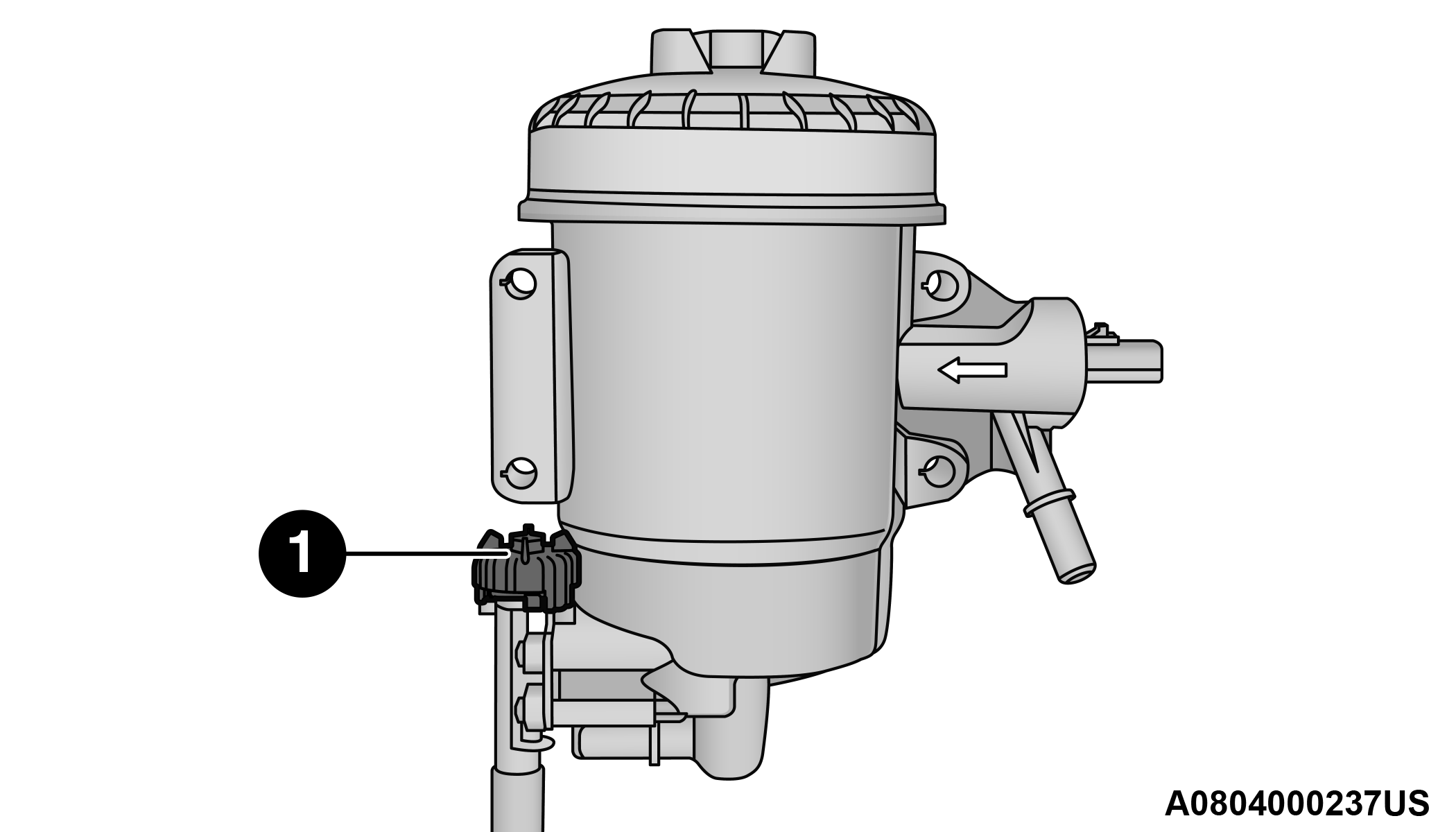-
Using a fuel filter that does not meet the manufacturer's filtration and water separating requirements can severely impact fuel system life and reliability.
-
The engine mounted filter housing is equipped with a No-Filter-No-Run (NFNR) feature. Engine will not run if:
-
No filter is installed.
-
Inferior/Non-approved filter is used. Use of OEM filter is required to ensure vehicle will run.
-

Engine Mounted Fuel Filter Assembly
|
1 — Drain Valve |
-
Diesel fuel will damage blacktop paving surfaces. Drain the filter into an appropriate container.
-
Do not prefill the fuel filter when installing a new fuel filter. There is a possibility debris could be introduced into the fuel filter during this action. It is best to install the filter dry and allow the in-tank lift pump to prime the fuel system.
-
Ensure engine is turned off.
-
Place drain pan under the fuel filter drain hose.
-
Open the water drain valve a quarter turn counterclockwise and completely drain fuel and water into the approved container.
-
Close the water drain valve.
-
Remove lid using a socket or strap wrench. Rotate counterclockwise for removal. Remove used o-ring and discard it.
-
Remove the used filter cartridge from the housing and dispose of according to your local regulations.
-
Wipe clean the sealing surfaces of the lid and housing.
-
Install new o-ring back into ring groove on the filter housing and lubricate with clean engine oil.
-
Remove new filter cartridge from plastic bag and install into housing.
Note:Do not remove cartridge from bag until you reach this step in order to keep cartridge clean.
-
Push down on the cartridge to ensure it is properly seated. Do not pre-fill the filter housing with fuel.
-
Install lid onto housing and tighten to 22.5 ft-lb (30.5 Nm). Do not overtighten the lid.
-
Prime the engine, then start the engine and confirm there are no leaks Priming If The Engine Has Run Out Of Fuel — Diesel Engine.